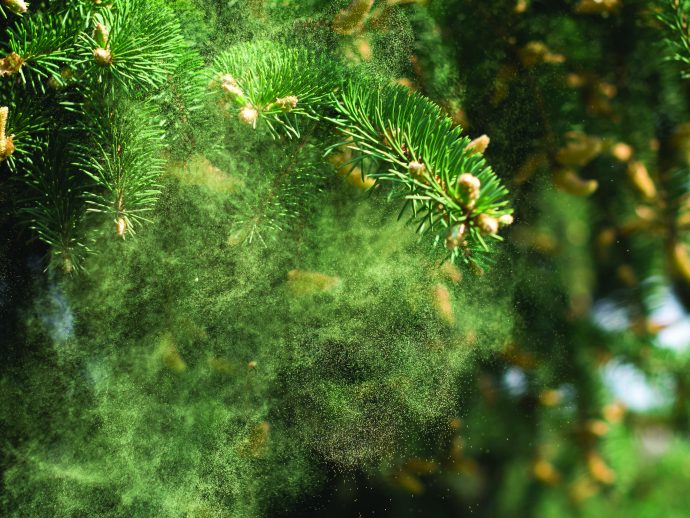
Hiding under a blanket of tissues through allergy season is no way to spend springtime! With simple tweaks to your food, supplements, and lifestyle, you can keep your symptoms at bay so your quality of life is fit for all seasons.
What causes seasonal allergies?
Seasonal allergies are triggered by inhaling aeroallergens from the outdoor air. While most people aren’t affected by these inhaled particles, those with seasonal allergies have become sensitized to them over time and thus experience a heightened immune response with exposure.
When the allergens make contact with the mucosa inside the nose, this stimulates the release of inflammatory immune proteins and causes upper respiratory symptoms such as sneezing and itchiness.
Seasonal versus perennial allergies
Although allergies to pet dander, dust mites, and cockroaches can trigger the same heightened immune response in susceptible individuals, these “perennial allergies” differ from seasonal allergies in their timing (year-round versus seasonal) and environment (indoor versus outdoor).
Seasonal versus food allergies
Seasonal and perennial allergies both differ from food allergies in that they are triggered by inhaling aeroallergens, whereas food allergy largely stems from the ingestion of food in the digestive tract. A key exception is that food particles can also be inhaled, which causes upper respiratory tract symptoms and possibly anaphylaxis in susceptible individuals.
The gut-brain-immune axis
There is a significant association between seasonal allergies and mental illnesses, including depression, generalized anxiety disorder, and panic disorder. While the reduced quality of life that accompanies seasonal allergies likely plays a role in this association, the gut microbiome could be another piece in the puzzle.
Research shows that disruption of the gut microbiome plays a role in the development of both depression and allergic disease. Changes in the gut microbiome can occur in response to stress, antibiotic use, lifestyle practices, urbanization, and diet.
Edible options
Enjoy a diversity of plant-based and probiotic-rich foods to support a healthy gut microbiome. Adding spirulina (blue-green algae) to your smoothie may reduce congestion, runny nose, and improve seasonal allergy-related quality of life.
Shallot and onion have antiallergic activity, thanks to their concentration of quercetin, and may improve the severity of allergic rhinitis. Those with allergy to birch pollen may have better control of their symptoms by enjoying birch pollen honey in advance of tree allergy season.
However, be aware of cross-reactivity of aeroallergens and food allergens, such as the following.
Aeroallergen |
Food |
| birch pollen | apple, carrot, hazelnut |
| cypress pollen | peach |
| mugwort pollen | peach, celery, camomile, mustard |
| ragweed pollen | melon, banana |
Allergy-lite lifestyle
Make home your sanctuary during allergy season. Keep allergens outside by closing windows, wiping down your pets when they come inside, mopping the floor rather than sweeping, and using the dryer rather than hanging clothes outside.
When you venture outdoors, check the pollen and mold report for your area and wear glasses to protect your eyes. Consider wearing nasal filters to reduce pollen entry into your airway. The use of nasal filters has been shown to both prevent and reduce seasonal allergy symptoms and improve quality of life.
Supplements for the season
Always check with your doctor before taking a new supplement. Some that may help with seasonal allergy symptoms include:
- Probiotic strains (Bifidobacterium bifidum, Bifidobacterium longum, and Lactobacillus gasseri)
- Butterbur
- Quercetin, perilla, and vitamin D3
- Vitamin C
- Methylsulfonylmethane (MSM)
- Bromelain
Written by Cassie Irwin, ND


